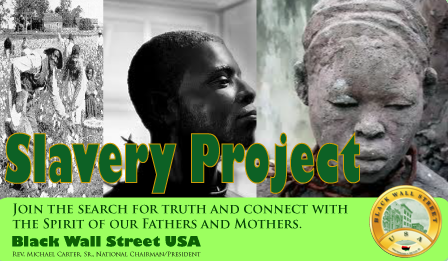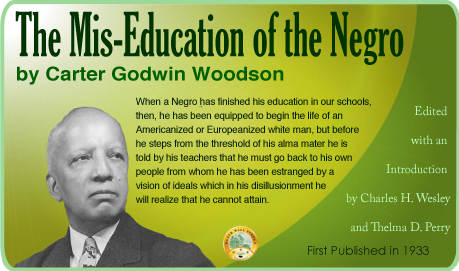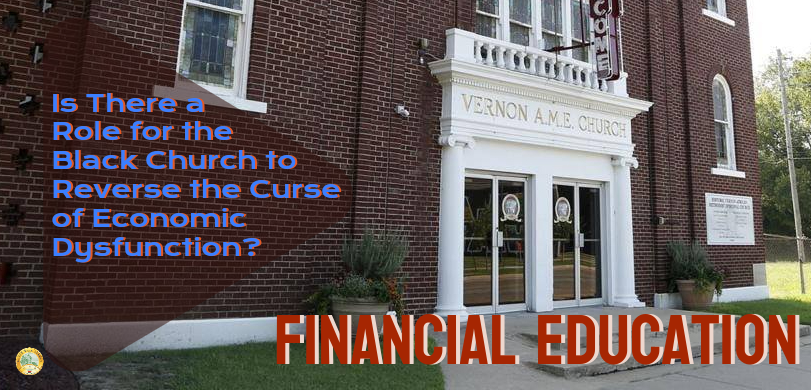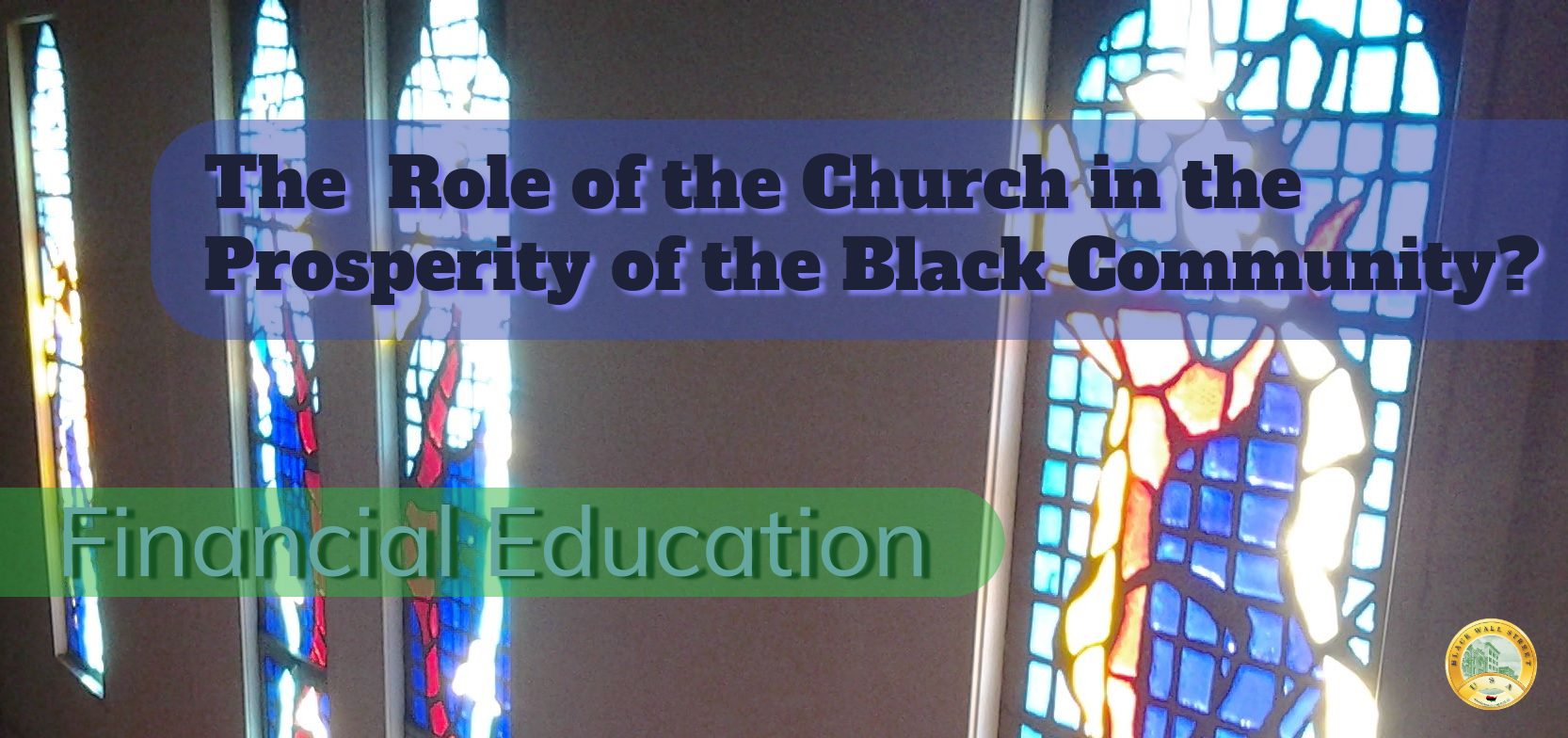
Longevity In Love



“There isn’t any secret. It was only God that kept us together.”
Pair Are World's Oldest Living Married Couple of 87 Years
Couple Maintains World Record for Longest Marriage After 87 years, husband and wife say there is no secret to their longevity
James City, North Carolina—a place where red clay roads wind through fields kissed by the sun and magnolia trees sway like silent sentinels of memory. It is here, amidst the quiet hum of a deeply rooted Black community, that the story of Herbert and Zelmyra Fisher began.
In the early 1900s, James City was more than a place—it was a living monument to the resilience of African Americans in the post-Reconstruction South. Once a Union-occupied settlement for freed slaves during the Civil War, it became home to hundreds of African American families who were rebuilding their lives, guided by faith, hard work, and an unshakable commitment to community.
It was in this soil of hope and hardship that Herbert Fisher was born on June 10, 1905, and Zelmyra Idlett on December 10, 1907. Their families, like many others, were raised on principles of integrity, respect, and a reverence for God. From a young age, both children were immersed in the language of the church—hymns on Sunday mornings, Scripture memorized in Sunday school, and prayers whispered over fields of collard greens and cotton.
The Fishers’ eventual bond was not born of wealth or convenience, but of spiritual alignment—the idea that two souls walking the same path could help each other reach heaven. Theirs was a marriage built not only on love but on sacred purpose.
When Herbert and Zelmyra married on May 13, 1924, they were just 18 and 16 years old, respectively. Young by today’s standards, but in those days, especially in tight-knit rural communities, marriage was often the cornerstone of life and survival. For the Fishers, it was also a covenant with God.
In many African American communities, marriage is not only a legal union—it is a spiritual contract, a living prayer enacted between two people before God. Their vows, said in a humble ceremony in their hometown, were more than words. “For better or worse, in sickness and in health, till death do us part,” became the very framework of their lives.
They believed that marriage was service—first to God, then to each other. This belief kept them grounded as they weathered decades of societal change, economic hardship, and personal loss. Through it all, they never wavered in their devotion—not just to each other, but to the Divine.

The Great Depression did not spare James City, nor did it spare the Fishers. Herbert worked jobs that paid nickels a day, yet he never faltered in his responsibility as provider. Zelmyra managed their household with grace and grit, raising five children in a home that radiated love despite its modest means.
They grew their own food, canned vegetables for the winter, and stitched their children’s clothes by hand. Their survival wasn’t luck—it was faith in action.
They lived the biblical principle that “faith without works is dead.” Herbert put that belief into motion by building their family home himself in 1942. Brick by brick, beam by beam, he constructed not just a dwelling, but a sanctuary—a sacred space filled with laughter, prayers, and gospel hymns drifting from the radio.
While Herbert poured his strength into labor, Zelmyra poured her spirit into nurturing the family’s emotional and spiritual health. Her philosophy was simple: “Try to treat everyone right.” And in doing so, she modeled Christlike love in her daily life.
Their unwavering faith taught their children not only how to survive—but how to thrive.
The world changed around them, but Herbert and Zelmyra Fisher remained steadfast. When other marriages collapsed under the weight of economic stress, infidelity, or emotional distance, the Fishers pressed on, anchored by something deeper than circumstance. They didn’t see their marriage as a contract of convenience but as a divine calling—a sacred trust given to them by God, one that would be judged not by the ease of their days but by their faithfulness through the trials.
They did not pretend to live without hardship. In fact, they embraced the full spectrum of life’s challenges, recognizing that adversity was not the absence of God, but a proving ground for His presence. When money was short, they prayed. When sickness visited their household, they held hands and knelt by the bed. When children came, they welcomed them with reverence, treating parenthood as a ministry of its own. Each child was a gift, a blessing, a reflection of the Creator’s ongoing work in their lives.
Herbert’s work at the Coca-Cola Bottling Company was more than a job—it was a labor of love. He poured himself into it with the same devotion he gave his marriage and his faith. Even in his later years, he was known in the community as dependable, a man of his word, and someone who gave more than he took. Zelmyra, meanwhile, tended to the home with quiet strength, shaping not just meals and clothing but values, memories, and discipline. She didn’t believe in shortcuts—not in faith, not in family, and certainly not in love.
Though they attended separate churches—Zelmyra at Jones Chapel AME Zion and Herbert at Pilgrim Chapel Missionary Baptist—there was no division in their spiritual unity. Their different church affiliations were a reminder of the richness and diversity of Black Christianity in the South, where the church is not just a building but a community, a history, a second home. They each brought the fullness of their faith into the marriage, and together they created a sacred rhythm of life that was always centered on God. Sunday was never just a day of rest—it was a day of restoration, of recalibration, a time to give thanks for another week of togetherness.
For Herbert and Zelmyra, prayer wasn’t reserved for the pulpit. It infused their every moment. They prayed over meals, over children, over bills and broken pipes. They prayed when they didn’t have enough and when they had more than they needed. That constant posture of prayer kept them humble and grateful. They believed that God’s hand had been on their union from the very beginning, and they never once claimed that the strength came from themselves.
Family was their heartbeat. As they raised their five children, they instilled the same virtues that carried them through the hardest times: honesty, responsibility, humility, and most importantly, reverence for God. They made sure the family ate together, prayed together, and respected one another. Even when discipline was needed, it was given with love, not anger. Their children remember long talks on the porch, listening to their father’s wisdom and their mother’s gentle corrections. They remember holidays where the house was full of the aroma of baked yams, roasted chicken, and cornbread, while gospel music played in the background.
As the years passed, and their family grew to include grandchildren, great-grandchildren, and even great-great-grandchildren, Herbert and Zelmyra became spiritual anchors for an entire lineage. Their home was a place of counsel, comfort, and celebration. Each generation came to see them not just as parents or grandparents, but as living testaments of love in action, faith in motion. Their marriage wasn’t a relic—it was a guiding light.
When they received national attention, including a personal commendation from President Barack Obama, they accepted it with humility. For them, the praise was never the point. The focus was always God, always family, always faith. Even when reporters asked them about the secret to their success, they deflected any notion of formula. Zelmyra, with her characteristic clarity, said simply, “It was only God that kept us together.”

That statement echoed not just through their family, but through the larger African American community that saw in their love a model of something deeper than romance. It was covenant. It was dedication. It was the sacred legacy of Black love—the kind that holds firm through segregation, economic injustice, and cultural shifts. It was the kind of love that survived the Great Depression, two World Wars, Jim Crow laws, the Civil Rights Movement, and the emergence of a new millennium. Their story was a mirror reflecting the enduring strength of a people whose faith never wavered, even when the world around them did.
When Herbert passed away in 2011, Zelmyra was by his side. She had loved him for 86 years, 290 days—a stretch of time almost incomprehensible in a world of fleeting commitments. Even in his final years, when his hearing faded and his body slowed, their connection remained unshaken. They would sit on the porch, watching the trains go by, fingers intertwined like ivy on an old oak tree. No words were needed. Their love had outlasted speech, outlived expectation.
Two years later, when Zelmyra passed, she left behind not only a family but a legacy. The spiritual principles that had carried her through more than a century were now seeds sown in the lives of her descendants. Her life was a living witness to the fruit of faithfulness—not just to her husband, but to God.
Their story is not just one of longevity, but of spiritual integrity. It’s a reminder that love is not always loud. Sometimes, it is a steady whisper, a quiet prayer before dawn, a simple meal shared in silence, a commitment to stay—not because it’s easy, but because it’s holy.
In an age where promises are often broken and attention is short, the Fishers stand as a towering example of what is possible when love is rooted in something eternal. They remind us that the vows we take are not just words, but acts of devotion, acts of worship. Their lives, like their marriage, were sermons—lived, not preached.
And so their story continues—not just in the pages of the Guinness Book of World Records, but in the hearts of those who believe in the sacred power of lasting love. Their lives whisper a truth that is rarely shouted: that the greatest legacy we leave is not in wealth or fame, but in how deeply we loved, how faithfully we served, and how truly we lived for something greater than ourselves.
Their children often spoke of their parents not just with affection but with reverence. Each child carried a piece of Herbert and Zelmyra’s love into their own lives, weaving the wisdom of their upbringing into the fabric of their adulthood. Franklin, the second-born, would often recall how his father taught him the value of consistency—how showing up every day, whether to work, to worship, or to family, was an act of sacred duty. Norma, one of their daughters, remembered long afternoons spent in the kitchen with her mother, where the chopping of vegetables was often accompanied by quiet conversations about life, trust, and the presence of God in every detail.
What the Fishers gave to their children went far beyond meals and shelter—they passed down a theology of survival. They taught that faith was not merely expressed in church pews, but in the living room, in the cotton fields, on the factory floor, and at the supper table. It was in the way they forgave each other quickly, in the way Herbert would gently rub Zelmyra’s back after a long day, in the way she would lay out his Sunday clothes every Saturday evening with care. These were sermons without words.
Their descendants—grandchildren, great-grandchildren, and great-great-grandchildren—grew up in the light of that legacy. Some became educators, others entrepreneurs, some entered ministry, while others simply carried the flame of love and discipline into their own homes. In family reunions, they didn’t just speak of Herbert and Zelmyra as ancestors—they were giants, living examples of love, resilience, and God-centered living. Even the youngest great-great-grandchildren knew their names and had heard the stories. Their photos were framed not just on mantels but in hearts.
Neighbors in James City often called them “Momma Z” and “Mr. Herbert,” titles that carried affection and honor. One neighbor, Mrs. Della Green, remembered when her husband fell ill and Herbert came by every morning for a month to help with yard work without being asked. Another, Pastor Raynard Gillespie, described Zelmyra as “the quiet force behind every good thing that happened in our part of town. She could say a whole sermon with a single nod.”
The churches they attended—Jones Chapel AME Zion and Pilgrim Chapel Baptist—both shared in honoring their union, though the Fishers never insisted on praise. Their faith community recognized that what they had built was more than a marriage—it was a spiritual institution. Church mothers would often point to them during marriage counseling sessions or youth programs, urging the younger generations to study how they loved. Not just how long, but how well.
The Fishers’ story is also deeply entangled in the broader narrative of African American marriage and spirituality through the 20th century. In a time when Black families were often fractured by economic pressure, migration, and systemic injustice, the stability of a married couple like Herbert and Zelmyra was not just uncommon—it was radical. Their marriage endured during the sharecropping era, the Great Migration, segregation, and the Civil Rights Movement. At every turn, Black love was both a sanctuary and a target. Laws once forbade enslaved Black people from marrying legally. After Emancipation, marriage became a powerful tool of self-determination, a public declaration that Black lives and families were sacred.

By the 1940s and 1950s, as urbanization took many African Americans from rural towns to bustling cities, the Black church remained the heartbeat of cultural and spiritual life. It was the church that upheld the values of unity, faithfulness, and family. Ministers preached not just salvation, but sanctity of marriage. In these spaces, couples like the Fishers found community support, accountability, and deep spiritual nourishment.
Even during the turbulent 1960s and 70s, as the country faced racial reckoning and the Black Power movement rose, Black marriage remained a symbol of dignity and resilience. Herbert and Zelmyra were not activists in the streets, but their lives quietly resisted the forces that sought to tear families apart. Every year they remained together, they preached a gospel of enduring love. Every bill they paid on time, every child they raised with intention, every meal they shared was a liturgy of survival.
In many ways, they were part of a generation that believed in the long haul. They had seen their own parents endure under harsher conditions, and they understood that giving up was a luxury they could not afford. But beyond survival, their marriage thrived because it was rooted in something bigger than themselves. They believed that marriage was ministry. They understood that dedication to one another was a daily offering to God.
Community members admired them not because they were perfect, but because they were faithful. They argued, but they made peace. They struggled, but they leaned on one another. They didn’t seek fame, but they lived in such a way that fame found them. And even when it did, they never stopped living simply—never stopped tending to their porch garden, never stopped waving at neighbors, never stopped attending Wednesday night Bible study or Sunday morning worship.
As the years stretched on, their home became more than a residence—it was a pilgrimage site of sorts. Friends and family would stop by just to sit on the porch, to breathe the air that love had seasoned. Young couples asked for advice, though the Fishers rarely gave formulas. Herbert would often chuckle and say, “Just keep showing up.” Zelmyra, more serious, would say, “God knows what He’s doing—let Him work.”
Their unity wasn't born of fairy tales or cinematic romance. It was forged in fire—the fire of poverty, the fire of war, the fire of grief and toil. And yet, out of those flames came something beautiful: a union that testified not only to their love, but to the enduring strength of African American faith and family.
The story of Herbert and Zelmyra Fisher lives on because it speaks to something eternal. It tells us that love can last when rooted in spiritual truth. It tells us that God is able to sustain what He ordains. And it reminds us that in a world so often obsessed with speed, there is still beauty in taking the long road together.
In the years following Herbert and Zelmyra's passing, their story only deepened in resonance. Their names began to appear in marriage workshops, podcasts, Black heritage exhibits, and even classroom lesson plans on faith, family, and perseverance. While they never set out to be role models, their legacy became exactly that—a blueprint not only for long-lasting love but for spiritual partnership rooted in faith and daily dedication.
Their grandchildren and great-grandchildren now live in cities across the United States—from Charlotte to Chicago, from Houston to Los Angeles—but they remain tethered to the soil of James City, and to the values instilled in them by the couple who taught them how to love with patience and honor. Some have photos of Herbert and Zelmyra hanging in their homes, framed next to wedding pictures, baby dedications, and graduation announcements, as though to say: "We are here because they stood."
Their great-granddaughter Monique, a millennial social worker based in Atlanta, often shares their story with young couples navigating the complexities of modern love. She tells them about the humble kitchen table where her great-grandmother read her Bible each morning. She speaks about her great-grandfather’s soft hands, worn from years of labor but always gentle when holding his wife’s. “They weren’t flashy,” Monique says. “They were faithful.”
Faithfulness, in their context, wasn’t about perfection. It was about remaining when leaving might have seemed easier. It was about working through the hurt instead of walking away from it. It was about building—not just a house or a family—but building a legacy with bricks of grace, mortar of prayer, and a roof of shared hope.
Today, in a cultural moment where marriage is often treated as conditional—subject to moods, convenience, or personal fulfillment—the Fishers’ commitment stands as a gentle rebuke and a powerful lesson. It tells us that marriage, when viewed through the lens of service and sacred covenant, becomes a vessel through which God’s presence can be made manifest.

Their story has begun to circulate within Black churches as a teaching tool. In Sunday school sessions and premarital counseling programs, their example is held up not as a fairy tale, but as a faithful walk. Pastors and elders reference them to illustrate how love can be a ministry. In some churches, a “Fisher Award” has even been established to honor couples who demonstrate extraordinary commitment.
But perhaps the most striking impact has been among young couples searching for a spiritual compass in their relationships. For many, Herbert and Zelmyra’s story offers hope—that love doesn't have to be loud to be strong, that longevity isn’t outdated, and that faith can bind two hearts across decades.
Social media helped propel their story further, allowing a new generation to discover them through short videos, anniversary tributes, and quotes pulled from interviews. One quote, in particular, has gone viral countless times:
That sentence—so unpretentious, so full of truth—resonates deeply in an age of digital relationships and curated love. It reminds people that underneath all the filters and fanfare, the true sustainer of lasting love is something divine. Something not of us, but within us.
And so, Herbert and Zelmyra’s marriage has become more than personal history—it has become cultural memory. In their lives, we see the threads of African American spiritual tradition: the quiet faith of elders who didn’t speak in tongues but lived by the Spirit, the sacred nature of daily routines, the theology of steadfastness. They were, in their own right, spiritual revolutionaries—offering a model of love that resisted a world built to pull them apart.
Their home in James City has become a kind of unofficial landmark. While it's still privately owned by family, many who knew them still walk by and tip their hat, as if paying homage. Neighbors keep up the lawn as an act of respect. Local schoolchildren, when taken on walking tours of the neighborhood’s history, often hear about “the couple who stayed”—the couple whose marriage lasted longer than some lifetimes.
For younger people navigating the complexity of modern life—economic instability, racial injustice, personal disillusionment—the Fishers’ marriage tells a different story. It says that we are capable of lasting love. That through God, we can sustain commitment. That relationships, when forged in faith, can withstand even the harshest trials.
In the modern age, where everything moves quickly, where attention spans are short and love is often transactional, their story offers a call to stillness. It invites couples to slow down, to plant roots, to weather storms together rather than alone. It reminds the world that spiritual relationships are not just about praying together or attending church as a couple—but about becoming an embodiment of grace to one another every single day.
Herbert and Zelmyra Fisher lived through two World Wars, the Great Depression, Jim Crow, the Civil Rights Movement, and the dawn of the digital era. They loved each other through it all. Not just because they were committed—but because their love was consecrated. It had been handed over to God early, and it was God who sustained it.
And that, in the end, is their greatest gift to the world: a living parable that whispers across generations, “Love each other well. Trust God more. And don’t quit.”
In the twilight of their lives, Herbert and Zelmyra Fisher likely never imagined that their quiet devotion would echo beyond their neighborhood, beyond North Carolina, beyond even the borders of their country. Yet their legacy has become exactly that—a soft but enduring trumpet call to a world hungry for examples of what lasting love, deep faith, and generational resilience can look like.
As their story continues to circulate—from churches to classrooms, from family cookouts to international media platforms—it sparks a broader dialogue about the values we choose to elevate. In an era saturated with impermanence and instant gratification, their nearly 87-year union serves as a corrective and a compass. It invites couples, communities, and cultures to reconsider what it means to build something lasting.
Nationally, their story resonates across racial and religious lines, but especially within African American communities, where the sanctity of family has long stood as a pillar of survival and progress. From the days of slavery, when marriage was denied and families were torn apart, to Reconstruction, to the migration waves of the 20th century, Black love has always been more than personal—it has been political, cultural, and spiritual. The Fishers' marriage, grounded in prayer and commitment, is a continuation of that sacred lineage.
In schools, their story can serve as a case study in resilience and character. In churches, it is a living testimony. In the media, it offers an antidote to sensationalism—a reminder that real love, the kind that endures, is often quiet, faithful, and forged over time. Their lives challenge assumptions about what makes a story worth telling. It doesn’t have to be dramatic to be transformative. It just has to be true.
Internationally, their legacy speaks to the human longing for connection, the power of covenant, and the sustaining presence of faith across cultures. In countries where family remains central to identity, their marriage is a mirror. In places where generational trauma has fractured families, their story becomes a balm, a message that healing is possible through intentional love and divine guidance. It calls leaders, educators, spiritual mentors, and policymakers to consider the role of strong families—not just as private blessings, but as public goods that stabilize communities and shape futures.
Their example also opens up space for interfaith and intercultural conversations about the spiritual dimensions of commitment. Regardless of religious background, people can look at Herbert and Zelmyra and see something sacred: two lives intertwined by purpose, sanctified by hardship, and sealed with a trust in God. Their marriage becomes an invitation to reflect on what we value, what we cultivate, and what we are willing to fight for in our most intimate relationships.
As the world grapples with loneliness, broken homes, and the erosion of communal bonds, the Fishers’ story offers a roadmap—not to perfection, but to perseverance. Not to grandeur, but to grace. They remind us that sometimes the most revolutionary thing two people can do is stay. Stay with one another. Stay faithful. Stay kind. Stay connected to a power greater than themselves.
Theirs was not just the longest recorded marriage. It was a spiritual legacy—an 86-year sermon on love, anchored in God and lived in service to each other. And long after the applause has faded and the world has moved on to other headlines, the ripples of that legacy will continue. In every young couple who chooses prayer over pride, in every family that gathers around the table in peace, in every community that honors the quiet strength of its elders—the spirit of Herbert and Zelmyra Fisher will live on.
And in this way, two lives joined in a small town in North Carolina will continue to teach the world what is possible when love is patient, when love is kind, when love endures all things—and when love trusts not just in each other, but in God.













